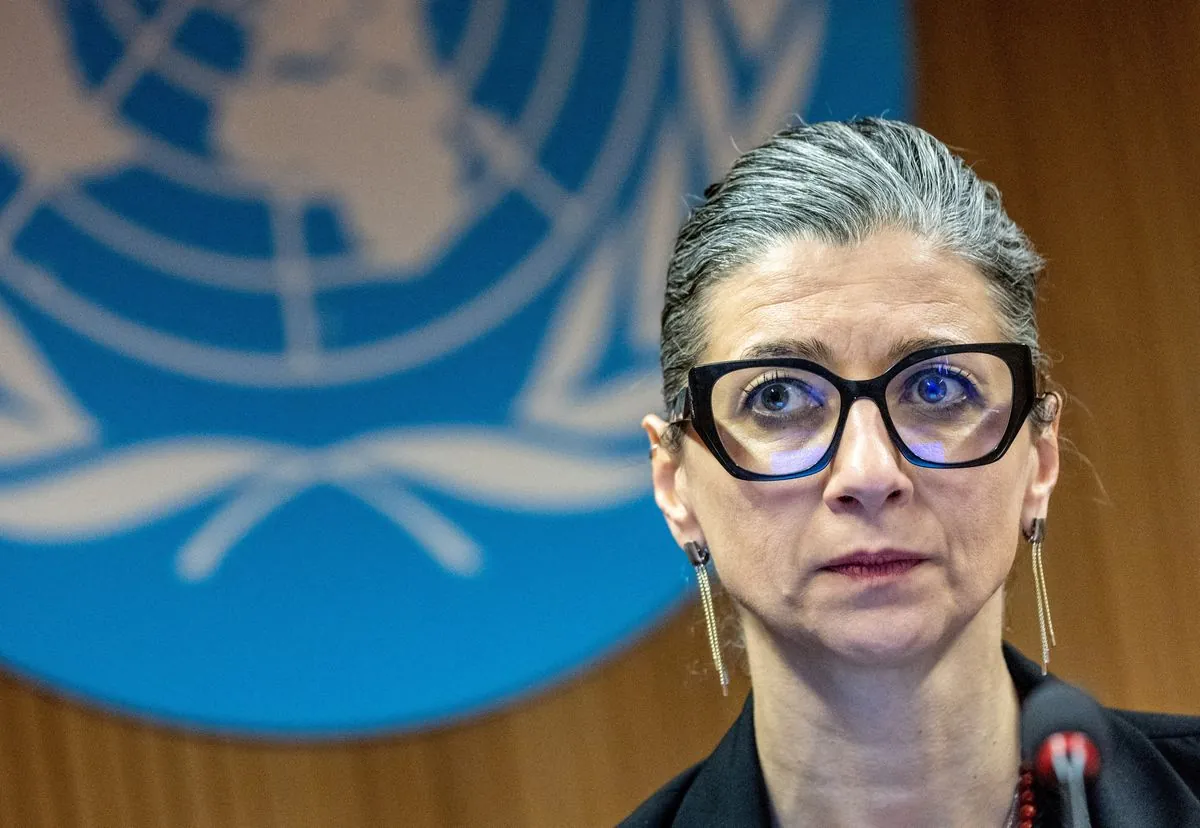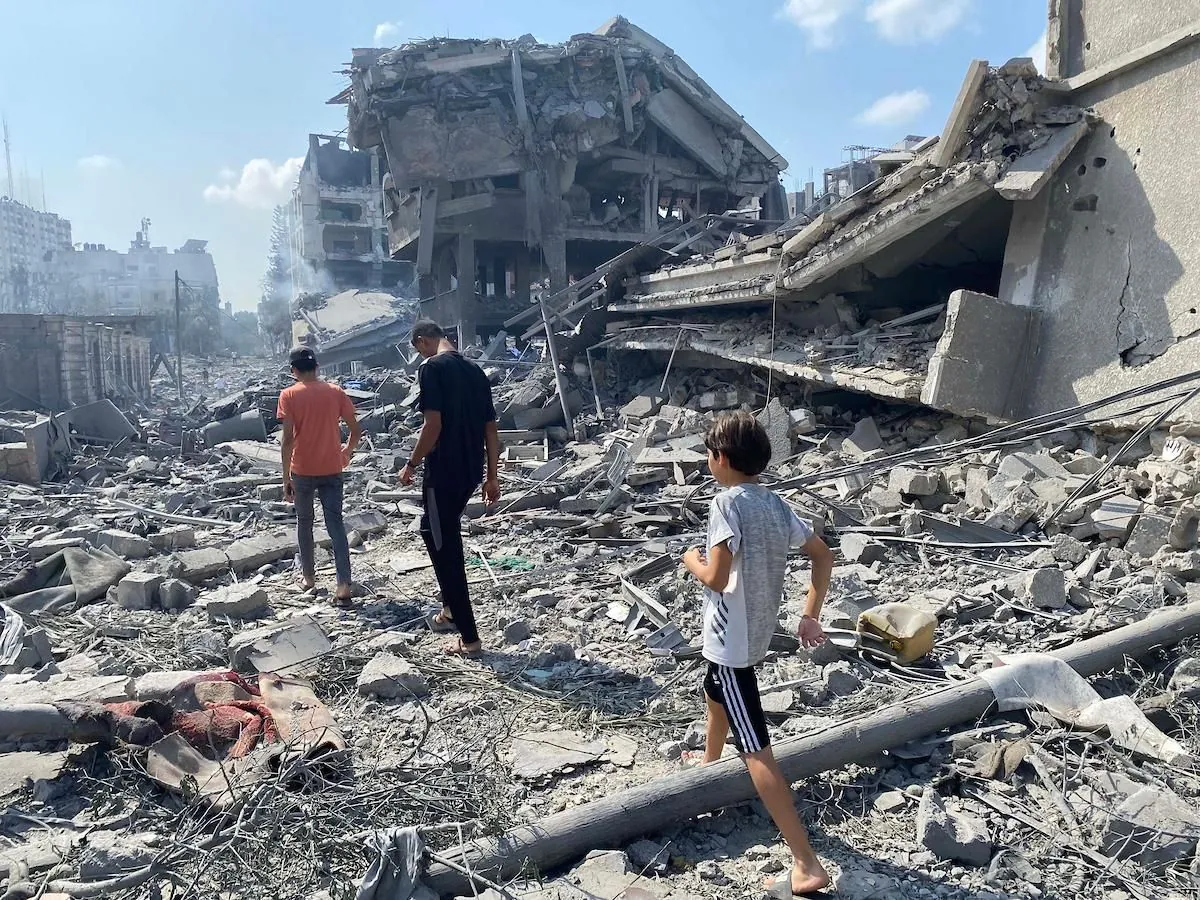UN Experts Criticize Western Support for Israel Amid Gaza Crisis
UN human rights experts accuse Western nations of hypocrisy for supporting Israel despite alleged genocide in Gaza. Israel denies claims and defends its actions, while tensions rise over UN membership.

UN human rights experts have voiced strong criticism against Western nations for their continued support of Israel, despite allegations of genocide in Gaza. This condemnation comes as the conflict in the region has persisted for over 11 months, raising questions about the international community's response to the humanitarian crisis.
Francesca Albanese, the UN Special Rapporteur on human rights in the Occupied Palestinian Territories, expressed her dismay at the inaction of most member states. She stated, "Most member states remained inactive at best, or actively aiding and assisting Israel's criminal conduct." Albanese's role, established in 1979, is part of the UN's system of independent experts appointed by the Human Rights Council to monitor and report on specific human rights situations.
The experts highlighted what they perceive as double standards in the international community's approach to human rights violations. They pointed out that Western countries have been more vocal about alleged rights violations by Russia in Ukraine than about Israel's actions in Gaza. This comparison underscores the complex geopolitical dynamics at play in international relations.

Israel has vehemently denied the allegations of genocide, asserting that it takes measures to minimize civilian harm in its military operations. The country claims that at least a third of the Palestinian fatalities in Gaza are militants. This dispute highlights the challenges in verifying casualty figures and determining combatant status in conflict zones.
The Gaza Strip, with an area of approximately 365 square kilometers, is one of the most densely populated regions in the world. This high population density exacerbates the humanitarian impact of the ongoing conflict, making civilian protection a critical concern.
Albanese went further in her criticism, questioning Israel's right to its UN seat, which it acquired in 1949. She asked, "Should there be a consideration of its membership as part of this organisation which Israel seems to have zero respect for?" This provocative statement raises fundamental questions about the responsibilities of UN member states and the criteria for maintaining membership in the international body.
In response to Albanese's comments, Israel's permanent mission to the UN in Geneva issued a strong rebuke, stating that she is "not fit to hold any position at the United Nations." This exchange reflects the heightened tensions surrounding the conflict and its impact on diplomatic relations within the UN system.
The term "genocide," first coined by Raphael Lemkin in 1944, carries significant legal and moral weight in international law. The Genocide Convention, adopted by the UN General Assembly in 1948, provides a framework for addressing such allegations. The International Court of Justice has the authority to hear cases related to genocide claims, underscoring the seriousness of these accusations.
As the situation unfolds, the international community faces difficult questions about balancing diplomatic relations, human rights concerns, and the principles of the United Nations. With over 37,000 employees worldwide and operations guided by its six principal organs, the UN plays a crucial role in addressing global conflicts and humanitarian crises.
The ongoing debate surrounding Israel's actions in Gaza and the international response to the crisis highlights the complex challenges facing the United Nations as it strives to fulfill its mission of maintaining international peace and security.
[[Francesca Albanese, UN Special Rapporteur on human rights in the OPT]]
"I think it's unavoidable for Israel to become a pariah in the face of its continuous, relentless, vilifying assault of the United Nations, on top of millions of Palestinians."
This statement from Albanese reflects the growing concern among some UN experts about the potential long-term consequences of the current conflict for Israel's international standing and its relationship with the United Nations.


































